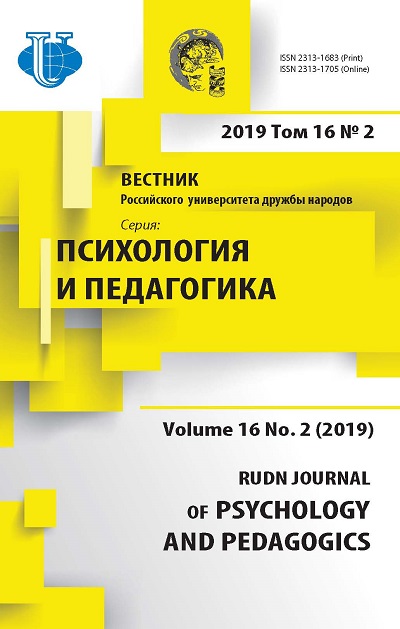Transforming Psi Chi and Psychology Through Internationalization
- Autores: Domenech Rodríguez M.M.1
-
Afiliações:
- Utah State University
- Edição: Volume 16, Nº 2 (2019)
- Páginas: 275-278
- Seção: CROSS-NATIONAL SCIENTIFIC COOPERATION: ON 10TH ANNIVERSARY OF PSI CHI INTERNATIONALIZATION
- URL: https://journal-vniispk.ru/2313-1683/article/view/347507
- DOI: https://doi.org/10.22363/2313-1683-2019-16-2-275-278
- ID: 347507
Citar
Texto integral
Resumo
-
Sobre autores
Melanie Domenech Rodríguez
Utah State University
Autor responsável pela correspondência
Email: Melanie.Domenech@usu.edu
Ph.D., is a Professor of Psychology at Utah State University (Logan, USA). Her research, teaching, consultation, and clinical activities are focused on advancing diversity and inclusion broadly. Her research focuses on cultural competence, cultural adaptations of evidence-based interventions, and parenting training in Latinx families. Dr. Domenech Rodríguez served as Faculty Advisor for the Utah State University Chapter of Psi Chi (2002-2015), Rocky Mountain Regional Vice-President (2005-2009), Editor of Psi Chi Journal of Psychological Research (2012-2016), and President of the Board of Directors (2018-2019).
2810 Old Main Hill, Logan UT, 84322-2810, United States of AmericaBibliografia
- Burton, N. (2015). The meaning of madness (2nd ed.). Oxford, United Kingdom: Acheron Press
- Curşeu, P. & Pluut, H. (2013). Student groups as learning entities: The effect of group diversity and teamwork quality on groups’ cognitive complexity. Studies in Higher Education, 38, 87-103. https:// doi.org/10.1080/03075079.2011.565122
- Domenech Rodríguez, M.M., Baumann, A.A., Vázquez, A.L., Amador-Buenabad, N.G., Franceschi Rivera, N., Ortiz-Pons, N., & Parra-Cardona, J.R. (2018). Scaling out evidence-based interventions outside the U.S. mainland: Social justice or Trojan horse? Journal of Latina/o Psychology, 6, 329- 344. https://doi.org/10.1037/lat0000121
- Henrich, J., Heine, S.J., & Norenzayan, A. (2010). The weirdest people in the world? Behavioral and Brain Sciences, 33(2-3), 61-83. https://doi.org/10.1017/S0140525X0999152X
- Montalvo, J.G., & Reynal-Querol, M. (2014). Cultural diversity, conflict, and economic development. In Handbook of the Economics of Art and Culture (vol. 2, pp. 485-506). https://doi.org/10.1016/ B978-0-444-53776-8.00018-0
- Roberson, Q.M. (2006). Disentangling the meanings of diversity and inclusion in organizations. Group & Organization Management, 31, 212-236. https://doi.org/10.1177/1059601104273064
- Ross, S.N. (2014). Diversity and intergroup contact in higher education: Exploring possibilities for democratization through social justice education. Teaching in Higher Education, 19, 870-881. https://doi.org/10.1080/13562517.2014.934354
- Watters, E. (2010). Crazy like us: The globalization of the American psyche. New York, NY: Free Press
- World Medical Association. (2013). WMA declaration of Helsinki - Ethical principles for medical research involving human subjects. Retrieved from http://www.wma.net/en/30publications/10policies/b3/
Arquivos suplementares








